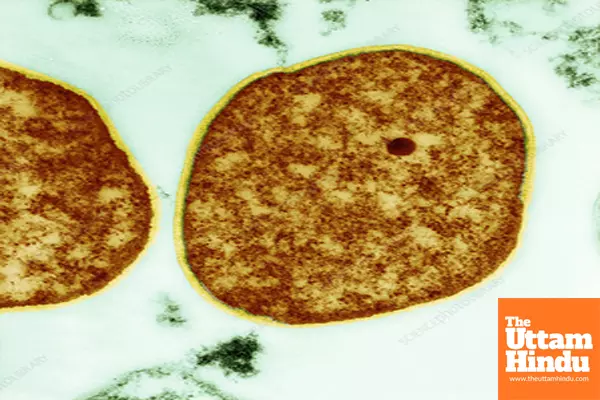Indian scientists uncover secrets of primitive organisms' survival strategies

New Delhi (The Uttam Hindu): Scientists at the Bose Institute, under the Department of Science and Technology (DST), have uncovered survival strategies used by archaea, ancient microorganisms, to adapt to extreme conditions through their toxin-antitoxin (TA) systems. Archaea, meaning "ancient things" in Greek, are among Earth's oldest life forms and belong to the third domain of life.These microorganisms thrive in some of Earth's harshest environments, making them ideal subjects for studying life’s ability to endure extreme conditions. A team led by Dr. Abhrajyoti Ghosh from the Department of Biological Sciences investigated how specific TA systems in archaea help them withstand high temperatures. Their findings, published in the journal mBio, focused on the heat-loving archaeon Sulfolobus acidocaldarius .
Sulfolobus acidocaldarius resides in volcanic regions such as Barren Island in India and other global volcanic sites, enduring temperatures as high as 90°C. The research highlighted the role of the VapBC4 TA system in surviving heat stress. The VapC4 toxin was found to perform critical functions, including halting protein production, promoting the formation of resilient cells, and aiding biofilm creation. Under heat stress, a stress-activated protease (yet to be identified in archaea) likely degrades the VapB4 protein, which usually restrains the VapC4 toxin. Once VapB4 is removed, VapC4 becomes active, blocking protein synthesis—a key survival strategy. This process helps form “persister cells,” which enter a dormant state, conserving energy and avoiding damage by halting protein production. These persister cells endure until environmental conditions improve, ensuring the organism's survival, the study revealed. The findings provide critical insights into how primitive life adapts to harsh environments, offering potential clues for understanding resilience in extreme conditions.
